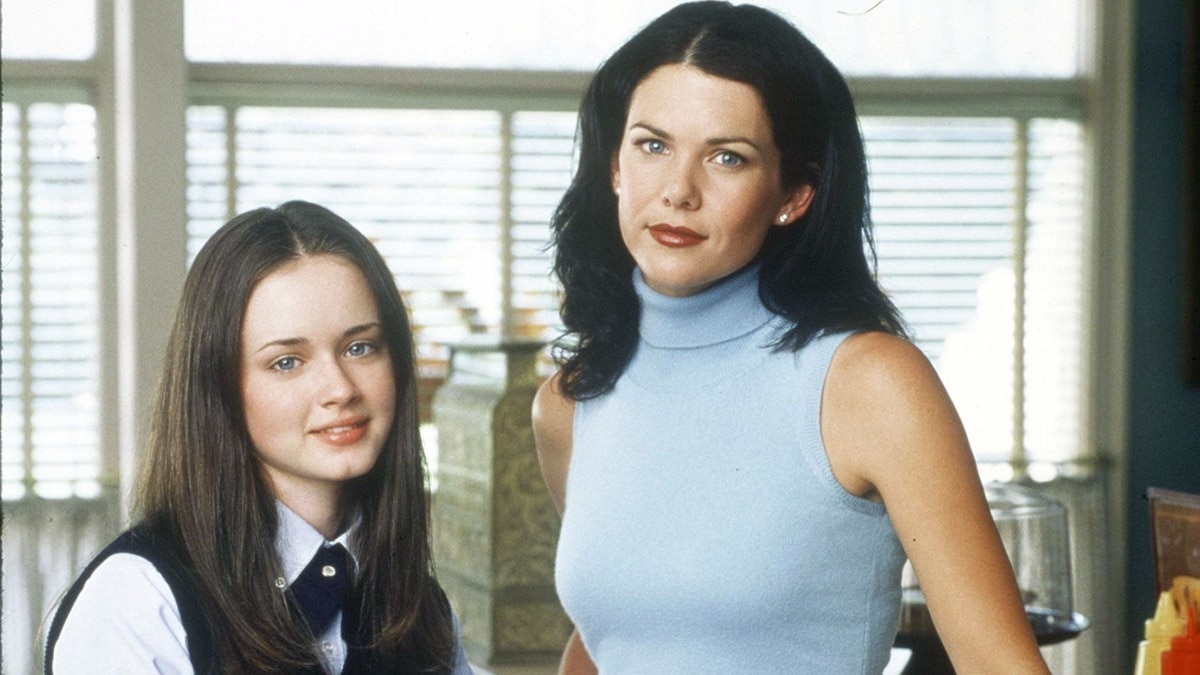After 11 reruns, I finally saw the problem with 'Gilmore Girls'
A yappy mother-daughter duo, incessant conversations about food and ‘coffee, coffee, coffee’, the romanticisation of snow, pop culture references, an idyllic small town—I loved everything about 'Gilmore Girls'…until I really started watching it.

My obsession with Gilmore Girls began about 10 years ago. I was 26, and the first episode of the show was already 15 years old by then. But none of these numbers mattered. Everything about the show—the small town set-up, the high-on-coffee mother and her coming-of-age daughter, the cosy diner serving greasy burgers and great coffee, as we were frequently reminded, Mrs Patty’s dance studio, Sookie James, of course, you get the drift—made home in my heart. But what truly drew me to it was the bond that Lorelai and Rory shared.
As a middle child who grew up in a joint family, a close relationship with my mother was an abstract, unattainable idea. Maybe I was looking to live vicariously through Rory, and honestly, I didn’t question why I loved every bit of it.
Parentification, what?
About a month ago, during one of my Instagram scrolling sprees, I came across Dr Nicole LePera’s page: The.holistic.psychologist, where she talks about everything from attachment styles and dysfunctional relationships, to nervous system regulation methods, and emotional burnout. One of the subjects that LePera touches most often is parentification. She puts it as plainly as: “You cannot parent your parents. And I think you will feel a lot better when you release yourself from the job that you were never meant to fill.”
Something clicked then. Every time something went amiss in Lorelai’s world, from minor inconveniences to heartbreak, she went to Rory for answers and comfort. Sure, a mother can turn to her daughter for a shoulder, but is it okay to expect the daughter to take on the role of a best friend or an adult who can understand complex feelings? Is it okay to expect the daughter to leave town at a whim, no questions asked, after the mother decides to call off her wedding, or to be made to feel guilty and handle her mother’s mood swings for bonding with her grandparents?
When I asked relationship counsellor Ruchi Ruuh about this mother-daughter dynamic, she called it a quintessential case of blurred boundaries. “The relationship between Lorelai and Rory, at first glance, is very playful, and it looks more like a friendship, but there are clear signs of emotional parentification. In simpler terms, it means that there is a role reversal, and the parent is leaning on the child for emotional support, relationship problems, and personal insecurities. There is also a complete lack of boundaries disguised as the ‘best friend’ dynamics. A healthy parent-child relationship includes respecting the child's emotional boundaries—but between Lorelai and Rory, there's little room for those boundaries to exist,” says Ruuh.
Parentification and its spillover
Psychology Today defines parentification as ‘when a child is forced to take on the role of a supportive adult within their family when parents cannot fully care for themselves’. This may range from being required to take care of younger siblings or refereeing parents’ arguments. Now, I know most zoomers and millennials will argue that they have had to, at some point in their lives, play the negotiator between their parents during arguments. Sure, that may likely be the case. However, as Psychology Today states, ‘The parentification phenomenon occurs on a spectrum, and it can lead to significant short-term and long-term challenges’.
Going by this, you may still be seeking validation from your parents or might experience anxiety every time a disagreement (however insignificant) occurs or, as Ruuh explains, “become a goal-oriented person”. She elaborates, “Rory is a highly responsible, disciplined, and goal-oriented individual. This most likely stems from the fact that growing up, she had to take care of herself and set some clear goals for herself, as she could not be a dependent child. The hyper-independence is a result of the conditioning in her childhood.”
Going by this, you may still be seeking validation from your parents or might experience anxiety every time a disagreement (however insignificant) occurs or, as Ruuh explains, “become a goal-oriented person”. She elaborates, “Rory is a highly responsible, disciplined, and goal-oriented individual. This most likely stems from the fact that growing up, she had to take care of herself and set some clear goals for herself, as she could not be a dependent child. The hyper-independence is a result of the conditioning in her childhood.”
The spillover of this phenomenon is also seen in adulthood and interpersonal relationships. During her graduation years, despite being physically away from Lorelai, Rory made herself available to analyse her mother’s dreams in the middle of the night. On the other hand, she did not think to turn to Lorelai when she realised she was falling for Jess while in a relationship with Dean. As Ruuh explains, “Parentification can make the child feel more responsible than their age permits. Some of the key personality traits observed among parentified children include perfectionism, approval-seeking, associating their self-worth with their achievements, and the most crucial of them all, the inability to seek help. They have always been raised to be the ‘helper’, the 'negotiator’, and thus, rarely find it safe to ask for help. They could appear very empathetic and may seem to be able to read other people’s emotions, but often they do not understand their own emotions well. Their hyper-independence comes in the way of their seeking emotional support or a hand with tasks. They feel that asking for help means taking up space and causing inconvenience for the other person.”
This is evident when Rory was instantly ready to overcome the discomfort of seeing her mother date her professor only because her mother "looked happy".
All this, despite Lorelai often crossing the boundaries, something that they had set together.
A lot of Rory’s life choices and behavioural patterns started to fall in place for me, and not in a good way. Maybe the world she built around books unknowingly became her perfect, fantastical escape and safe space. This likely holds for a lot of South Asians, who are almost always conditioned to vie for validation and who struggle to draw boundaries. For instance, even today, I gauge my mother's mood before bringing up a problem that I may be dealing with. Our morning calls are more about what's going on with her and her plans for the day, and less about what I am up to—an approach I have set, only because I feel I should not 'burden' her with everything that I feel so strongly about.
I may be able to connect only so many dots, but today, after 10 years and 11 reruns, I know one thing for sure: I may never be able to watch Gilmore Girls with the same enthusiasm and awe. I may never be able to see Lorelai as the ‘cooler’ mother (granted her behaviours also stem from a troubled childhood of another kind) as opposed to mine.
While some shows may not age well, this one seems to continue showing us a mirror and may be relevant until generational trauma cycles are broken and healthier parenting methods are adopted.
Lead image: Getty Images
Also read: Screaming as therapy is all the rage right now (literally)
Also read: Friendship red flags are real—and no, you're not being dramatic
more from Life

Is Gen Z going analogue amid an epidemic of disconnection?

Inside the rise of impossible-to-ignore cakes and the bakers making them worth the splurge

Suvir Saran would like you to clean your glasses

This Valentine’s Day, skip the reservations and cook up romance instead with TTK Prestige

Genius hack or pathway to loneliness? The dawn of dating’s spreadsheet era

I tried Pantene's Bond Repair Conditioner and here’s what it changed about my styling routine

Low-rise jeans are squeezing back into fashion—here’s how to wear them in 2026

I travel for a living—these are the top 15 tips I've learned to avoid skin freak-outs and overweight luggage

All the hottest beauty finds that make us sit up and take notice

Will we ever stop hating it when women propose to men?
